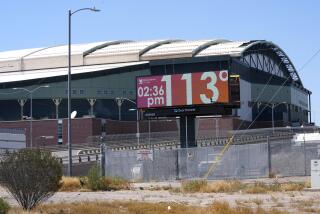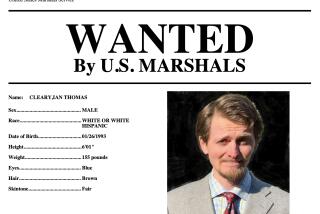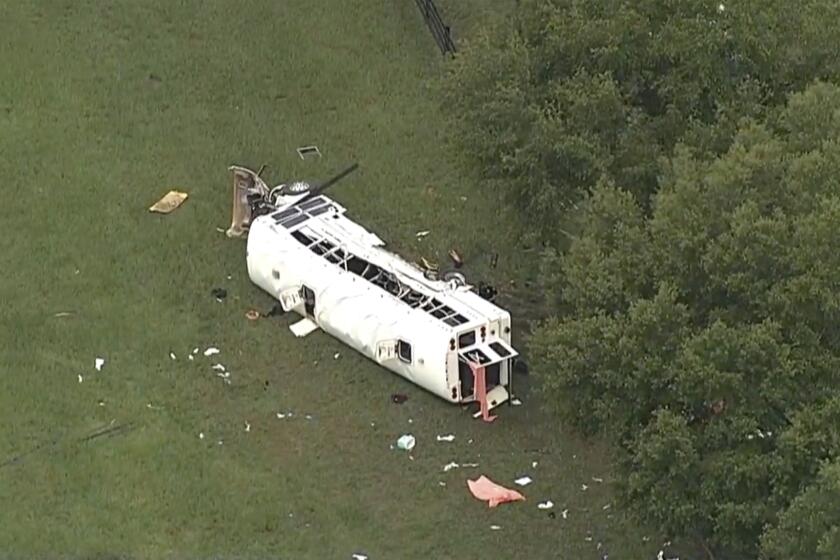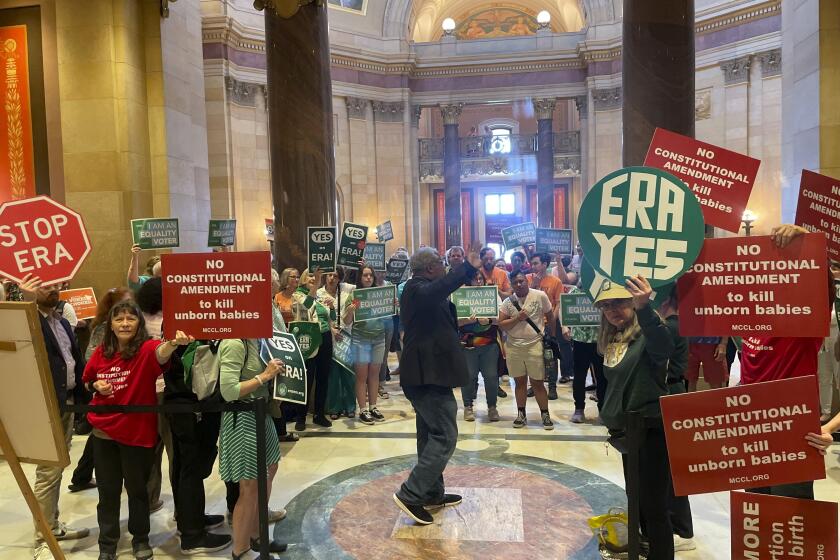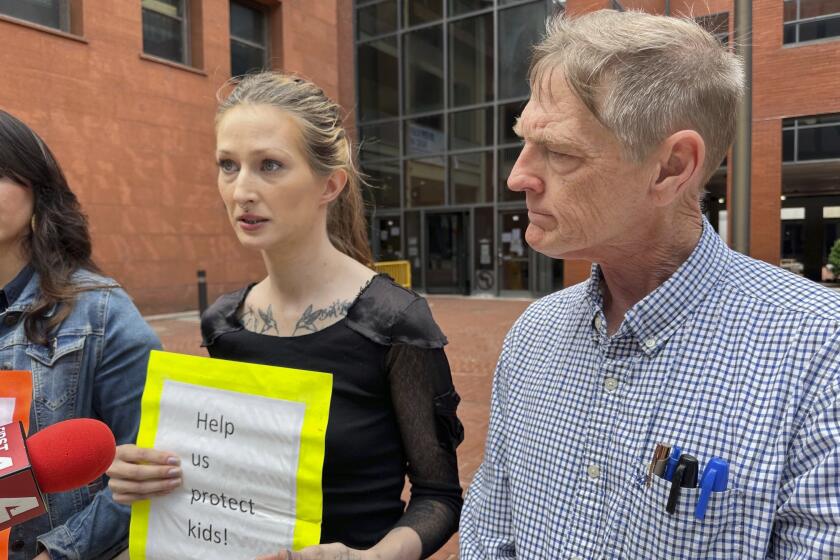Some Contra Leaders Souring on Peace Pact : Two Rebel Negotiators Say They Regret Signing Accord With Nicaragua, Forecast New Hostilities
The Nicaraguan peace agreement reached less than three weeks ago appeared to be losing support among Contra leaders Saturday, after talks on cease-fire rules collapsed.
Two Contra negotiators said for the first time that they regret having signed the preliminary accord with the Sandinista government March 23 in Sapoa, Nicaragua. Both termed the peace process “broken” and said they expect the war to resume.
“If I were in charge, I wouldn’t have gone to Sapoa in the first place,” said Aristides Sanchez, one of the rebel movement’s five civilian directors. “It was against my principles. I just don’t trust the Sandinistas.”
Diogenes Hernandez, the top Contra military negotiator, said the accord was signed “precipitously” by civilian rebel leaders and is viewed with suspicion by the rebel army, which stands to lose ground militarily during a cease-fire.
May Complicate Talks
Both men vented their misgivings Saturday in telephone interviews from Costa Rica, a day after storming out of talks in Sapoa on how to regulate a formal 60-day cease-fire that was supposed to have started April 1.
An unsupervised truce remains in effect. But the rebel leaders’ dissension is likely to complicate efforts to revive the technical talks and launch political discussions on terms for the Contras’ disarmament. Both sets of negotiations are aimed at turning the Sapoa accord into a lasting settlement of the six-year conflict.
Adolfo Calero, the chief rebel negotiator of the Sapoa accord, said Saturday that he still supports it. But he rejected the government’s latest ground rules for the follow-up talks.
Maj. Gen. Joaquin Cuadra, the Sandinista army chief of staff, broke off the technical talks Friday. He accused the rebel delegation, led by Sanchez, of lacking authority to sign an agreement.
Cuadra said the unsettled technical issues of how to separate the two armies must now become part of the political agenda in higher-level meetings tentatively scheduled to start Friday in Managua.
But Calero insisted that Sanchez’s delegation “had a very clear mandate,” and he said: “We will go to Managua only when those (technical) talks are concluded.”
Thus, the exiled rebel leader added a new condition for coming home to Managua. The Contras are also demanding freedom of movement in the capital, where the government wants them confined to a hotel, and the reappearance of La Prensa, the opposition paper, which stopped publishing last week after its government-supplied newsprint ran out.
If the Contras ever get here, they say they will demand an end to total Sandinista control over the army, the judiciary, television broadcasting, the electoral process and other levers of power.
Must Enter Truce Zones
But before those issues can even be addressed, rebel troops are obliged by the agreement to gather in cease-fire zones from which Sandinista forces have been evacuated--a process deeply troubling to the Contra field commanders.
Since the war began, the U.S.-backed rebels have survived largely by eluding the government’s larger and better-armed conventional forces. Once inside the enclaves, they say they believe the Sandinista army could surround them and crush the insurgency.
President Daniel Ortega magnified those fears Wednesday by declaring that “if the Contras don’t accept the agreements, the people must be ready for combat and . . . launch an offensive with all available force to be rid of (them) once and for all.”
Hernandez, the rebel whose code name is Comandante Fernando, said he and other military negotiators at Sapoa did not want to sign the accord. He said they did so at the insistence of Calero and Alfredo Cesar, the chief rebel civilian negotiators.
‘We Were Not Consulted’
“The people who live in hotels are responsible for this agreement, not the people who fight in the mountains,” Hernandez declared. “On certain points we were not consulted.”
Calero and Cesar have said they signed the agreement because there was little prospect for new U.S. military aid. They said the truce will test the Sandinistas’ willingness to make the political concessions they say they have been fighting for.
But Hernandez and Sanchez, the Contra director closest to the rebel fighters, said they have no illusions about the Sandinistas’ willingness to ease one-party rule. They said the rebels must stand ready to fight.
In last week’s technical talks, they failed to win demands they said would have guaranteed the rebels’ security in the enclaves. The Sandinistas refused to withdraw civilian authorities from the zones or to forgo Soviet military aid to their own army.
Sanchez stunned government negotiators by demanding new ammunition to replace what the Contras may fire in “training” or fighting off Sandinista violations of the cease-fire. The peace agreement forbids any military aid to the rebels.
Insists on Ammunition
“The Sapoa accord can say what it wants, but our forces are not going to enter the enclaves without enough ammunition to defend themselves,” Sanchez said in the interview. “What the Sandinistas are proposing is not a truce but our surrender.”
Sanchez said that he saw no point in resuming the technical talks or going to Managua for political negotiations under any circumstances, an extreme position at odds with Calero.
Sandinista negotiators said differences within the rebel leadership are making it hard to advance the peace talks.
“It’s understandable because they are entering uncharted waters,” said Paul S. Reichler, an American adviser to the Sandinista delegation. “They are embarked on a process that will lead them inevitably to laying down their arms. They have been wedded to their arms over the last seven years.”
Both sides have reported minor clashes during the truce. The rebels have accused the Sandinistas of shelling rural settlements in four provinces to rout civilians from areas tentatively designated as rebel enclaves. The army has denied the shelling.
More to Read
Start your day right
Sign up for Essential California for news, features and recommendations from the L.A. Times and beyond in your inbox six days a week.
You may occasionally receive promotional content from the Los Angeles Times.
